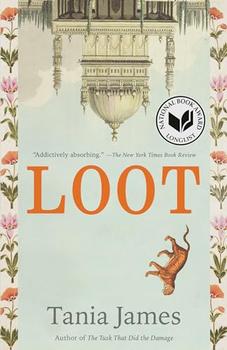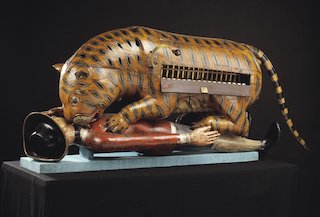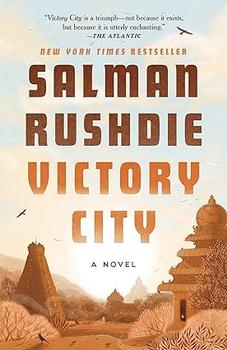Summary | Excerpt | Reading Guide | Reviews | Beyond the book | Read-Alikes | Genres & Themes | Author Bio

A Novel
by Tania JamesA spellbinding historical novel set in the eighteenth century: a hero's quest, a love story, the story of a young artist coming of age, and an exuberant heist adventure that traces the bloody legacy of colonialism across two continents and fifty years. A wildly inventive, irresistible feat of storytelling from a writer at the height of her powers.
Abbas is just seventeen years old when his gifts as a woodcarver come to the attention of Tipu Sultan, and he is drawn into service at the palace in order to build a giant tiger automaton for Tipu's sons, a gift to commemorate their return from British captivity. His fate—and the fate of the wooden tiger he helps create—will mirror the vicissitudes of nations and dynasties ravaged by war across India and Europe.
Working alongside the legendary French clockmaker Lucien du Leze, Abbas hones his craft, learns French, and meets Jehanne, the daughter of a French expatriate. When Du Leze is finally permitted to return home to Rouen, he invites Abbas to come along as his apprentice. But by the time Abbas travels to Europe, Tipu's palace has been looted by British forces, and the tiger automaton has disappeared. To prove himself, Abbas must retrieve the tiger from an estate in the English countryside, where it is displayed in a collection of plundered art.
As in any exceptional novel, resonances and subthemes run like an underground river throughout the book—most obvious in this case is the impact of the British in India and the never-overstated reminder of how deeply a country's course of history can be altered by a foreign civilization imposing its own modes. The British swept through the region with a great sense of their own destiny, and in doing so, deprived local cultures of their own...continued
Full Review
(600 words)
This review is available to non-members for a limited time. For full access,
become a member today.
(Reviewed by Danielle McClellan).
 Central to the plot of Loot is the magnificent Tipu's Tiger, the wooden automaton that Abbas, a young Muslim woodcarver, creates in the 1790s in collaboration with the French inventor and clock maker Lucien Du Leze at the request of their ruler, Tipu Sultan.
Central to the plot of Loot is the magnificent Tipu's Tiger, the wooden automaton that Abbas, a young Muslim woodcarver, creates in the 1790s in collaboration with the French inventor and clock maker Lucien Du Leze at the request of their ruler, Tipu Sultan.
According to the Mechanical Art and Design Museum (MAD), the word automata (the plural of automaton) is taken from the Greek word αὐτόματα, or "acting of one's own will." An automaton is a moving, mechanical device, usually constructed to look like a human or animal figure, which uses a variety of mechanical systems to give the illusion of autonomous movement. Automata made before the 16th century have not survived, but we ...
This "beyond the book" feature is available to non-members for a limited time. Join today for full access.

If you liked Loot, try these:

by David Diop
Published 2024
The hotly anticipated new novel by David Diop, winner of the International Booker Prize.

by Salman Rushdie
Published 2024
The epic tale of a woman who breathes a fantastical empire into existence, only to be consumed by it over the centuries—from the transcendent imagination of Booker Prize–winning, internationally bestselling author Salman Rushdie.
We've heard that a million monkeys at a million keyboards could produce the complete works of Shakespeare...
Click Here to find out who said this, as well as discovering other famous literary quotes!